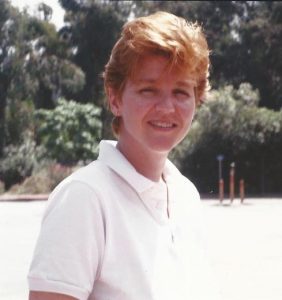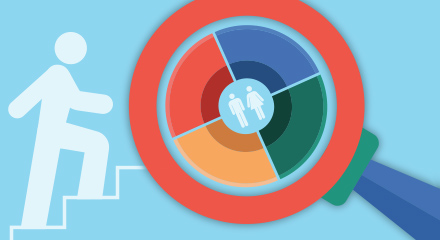What I’ve Learned: Dawn Hollingsworth
Posted 3/23/2018Principal, Darkhorse Lightworks, LLC.
Growing up, my grandmother was the most independent woman I knew. She worked hard and was self-sufficient until she reached her 90’s. She knew my mother would have a better life if she continued her education after high school and made sure my mother went to college when few women did. The value my family placed on education has shown me the road is much smoother when you have a great foundation.
Many people say to follow your passion. I agree you should be passionate about what you are doing, but it’s also important to understand your skills and to choose a path that will lead to success and fulfillment. I’ve learned that even if someone is passionate about being a designer, but their aptitude isn’t in design, self-assessment might lead a person to another type of position in a design firm where they can use their skills and still love what they’re doing.
I’m fortunate that what I call ‘tribal knowledge’ was passed on to me by people willing to share their information and ideas. It’s helped me realize that when I teach, it lets me pass some of what I have learned to my students. Share your time, expertise, love and respect.
Unless you’re royalty, not many people are born at the top [laughs]. It takes hard work and lots of help. I’ve learned that when people are not concerned about who gets the credit, there is plenty to go around! In managing people, my greatest joy was seeing their success. For me, that meant I was steering them in a direction where they could achieve and feel valued. I’ve learned to be generous with giving credit.
Parenting taught me that you can set rules and boundaries for your children, but they have their own minds—each child responds differently. The important part is to give them enough room to explore their interests while guiding them to make smart choices. Having interests in common is great, but that may not always be the case and you can’t make kids do what you want—that just breeds distrust. I’ve also learned by letting them follow their own path! There’s no owner’s manual for relationships [laughs].
Change is going to happen. Sounds obvious, but most people aren’t looking for change. Change happens whether we are paying attention or not. Some change is glacial, and some is revolutionary, but don’t believe anyone who buys the company you work for and tells you nothing will change. Accept change will happen and master the new opportunities.
Don’t be afraid to do something different. I’ve learned that most career moves are not fatal, and I could even learn something valuable from a bad experience. Knowing what I didn’t want is as important as knowing what I did want.
Arthritis, rising cholesterol and health concerns suck as you get older, but the best age is the one you are now. Most 60-year-olds wouldn’t want to be 30 again. I do miss having the energy I had at 30, but in many ways I feel I’m more present in the activities I can still do. I appreciate watching now as much as participating—I’ve been a football fan my entire life, and Fantasy Football gives me a new way to engage without the risk of personal injury [laughs]. My perfect age is now.
Success is often measured by how many offices, employees or revenues a company obtains. The phrase “grow or die” comes to mind. The words ‘growth’ and ‘success’ are often used interchangeably, but I’ve learned that growth can mean different things— I’ve learned to try to discard old ways of thinking, old practices and dead weight in order to make room for new growth that lead to new successes. Growth is manifested in many ways.
No one wins one hundred percent of the time. Even Tom Brady loses a game every now and then [laughs]! I’ve learned that you can’t move forward without risk. I’ve found that people who believe in what they’re doing will accept failure and learn from it. I’ve found that it’s actually better to admit failure than hide it. When I teach, I share stories of job problems or design decisions I would have made differently with my students all the time. It creates a pattern of learning from mistakes, and if I as teacher am willing to admit to my shortcomings, it gives students confidence to explore their own ideas.




